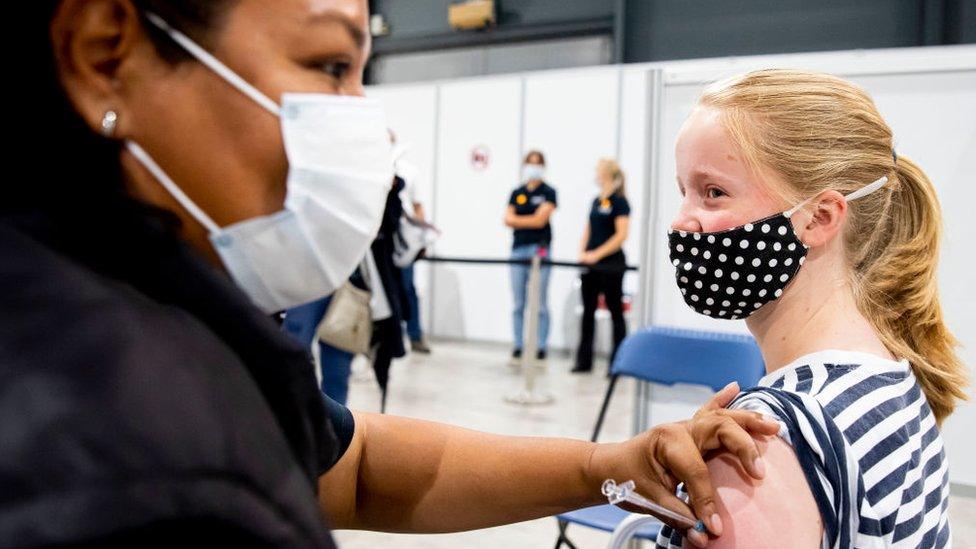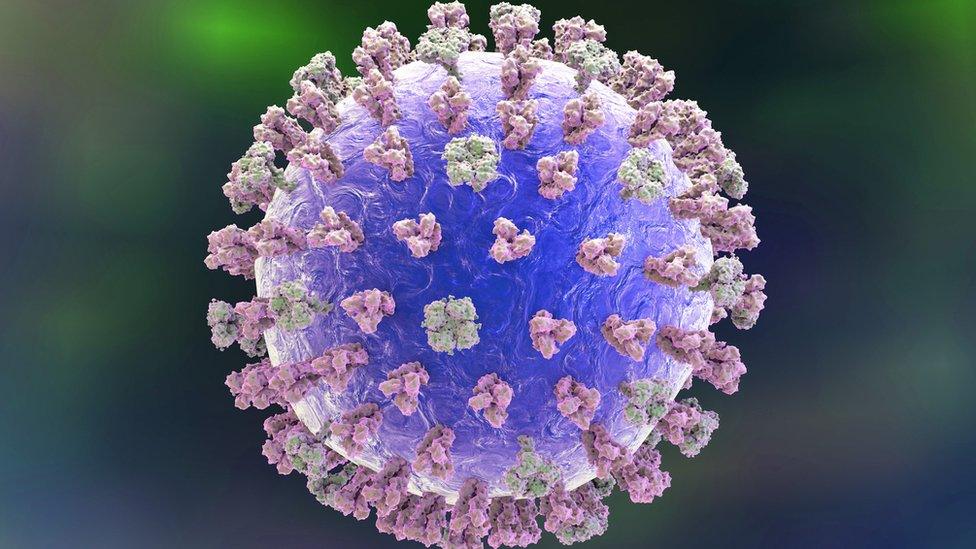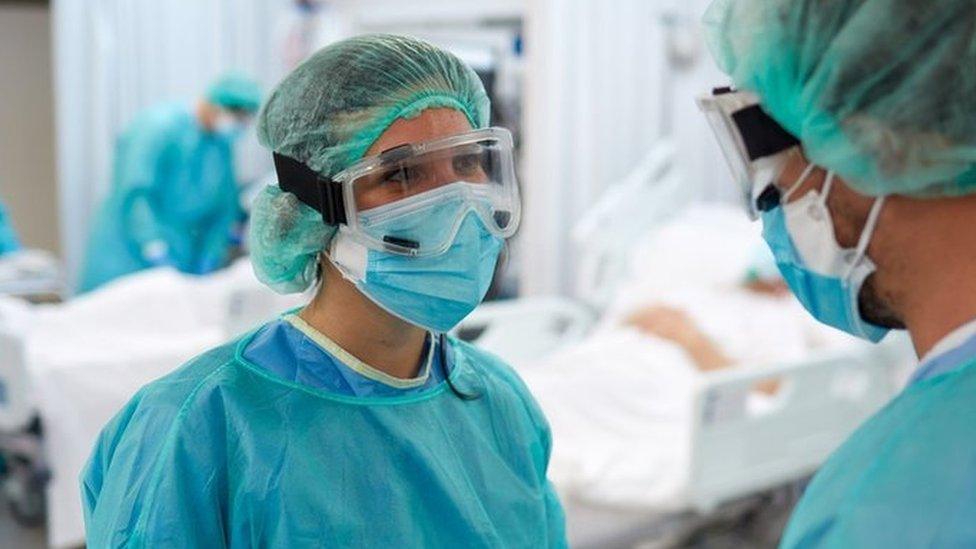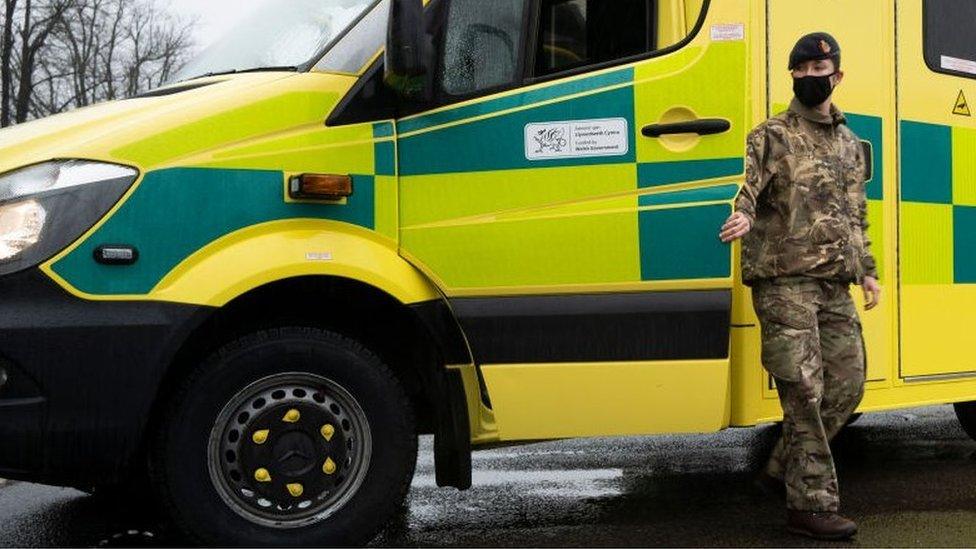Covid: Children 'may be more susceptible to common illnesses this winter'
- Published

Children might be more susceptible to common illnesses this winter because of an "immunity debt" built up during lockdown, government scientists say.
A senior adviser said the re-emergence of respiratory diseases suppressed during the last lockdown could "put a spanner in the works".
Dr Rob Orford said there is a "great deal of uncertainty" about what could happen next in the pandemic.
It comes as waiting times records were broken again in the Welsh NHS.
Chief Medical Officer Dr Frank Atherton said Covid is "getting in the way" of dealing with a "huge backlog" in the NHS.
Hospitals are trying to catch up with lots of routine patient care that was put on hold during lockdown.
On Wednesday Health Minister Eluned Morgan admitted the ambulance service was under "unprecedented" pressure.
Dr Orford, the Welsh government's chief scientific adviser for health, spoke at a meeting of the Senedd's health committee.
He told the committee: "We may have stacked up some immunity debt in the system where children have not been mixing with friends, and so they may be more susceptible to some of the illnesses we traditionally see."
Members of the Senedd (MSs) were told children were much less likely to get seriously ill with coronavirus or to develop long Covid.
But Fliss Bennee, co-chair of the government's technical advisory cell, said children had suffered "unproportionally" in the pandemic by losing out on education and play.
She added: "We are also aware that there is a harm that builds up from not being able to have social interaction that leads to the development of barrier immunity from exposure to other infection diseases."

Advisers are concerned about how Covid might interact with other illnesses like flu
Dr Orford warned that new variants of the virus that causes Covid could emerge, and there could be co-infection with other illnesses.
"What happens if flu plus Covid occur in Wales?" he told the Senedd's health committee.
Dr Atherton said he was worried about the winter because there was already a "very high level of hospital activity".
There were "very high levels of community transmission" of coronavirus, but that was "much less" harmful than in the first and second waves because of the vaccines.
Cases had "stabilised" last week, but had risen again in recent days "which is probably a reflection of the schools going back, because we know that when that schools are in session there is more community mixing generally".
He later added that it could take "months, years" for the whole backlog of untreated patients "to be caught up".
Dr Frank Atherton said it was a priority for ministers and health boards had plans to recover elective, or non-urgent, operations.
But they were also coping with the effects of coronavirus.
Yesterday there were almost 650 Covid-related patients in hospital beds, Dr Atherton said. Higher standards of infection control, greater use of PPE and more testing had slowed down care.
- Published23 September 2021

- Published22 September 2021

- Published28 May 2024
